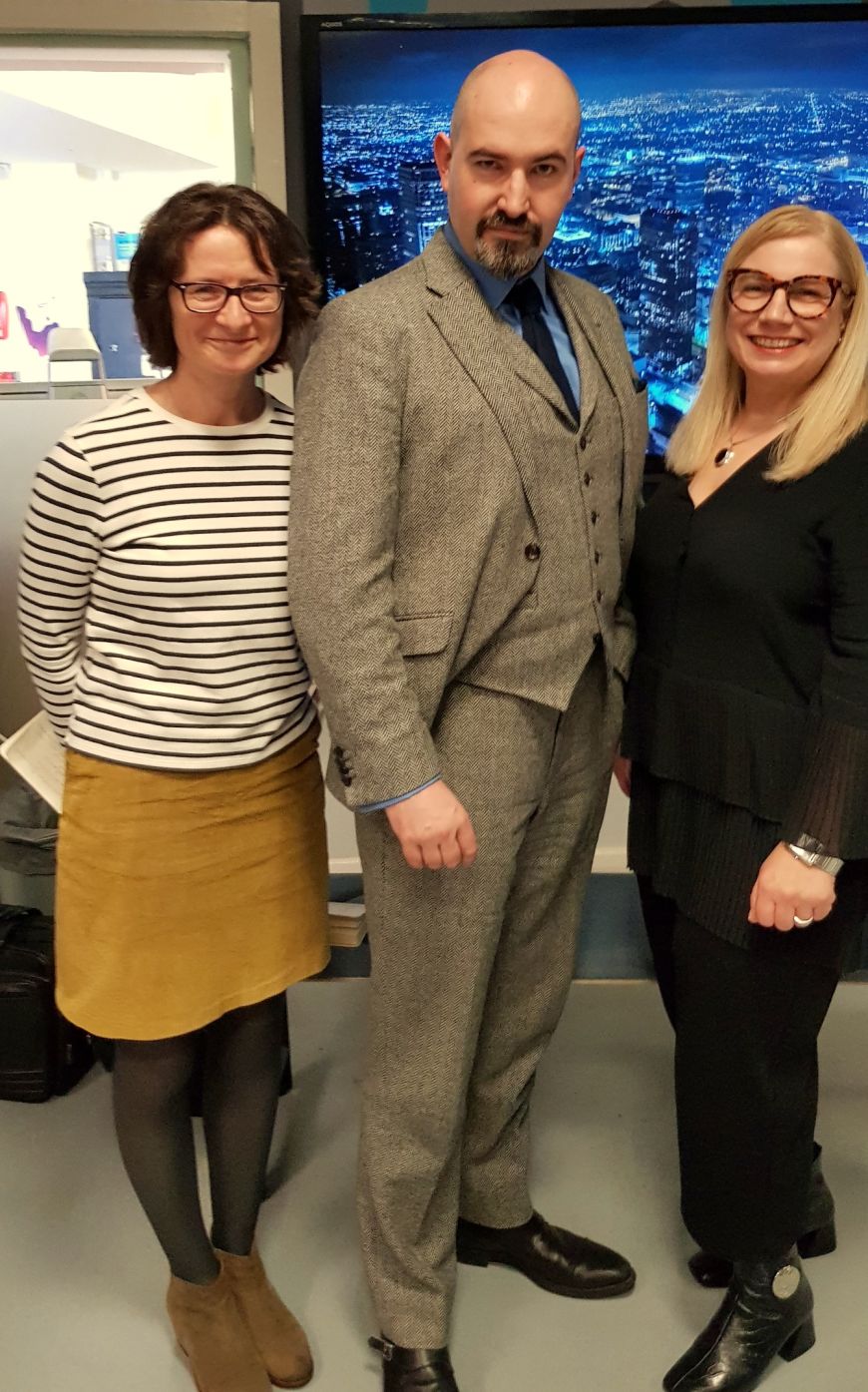
Wed 13 / 03 / 19
Interview with Dr Jamie Coleman, co-founder of CodeBase, the UK’s largest tech incubator
Chamber Vice-President Jill Woolf recently interviewed Dr Jamie Coleman at an event at Barclays Eagle Lab Brighton on Getting Investor Ready. You can see more about CodeBase here.
In a somewhat smaller tech hub on a cold, rainy evening, Jamie kept his audience gripped with his insights into the world of billion-dollar tech investors, venture capital and innovation.
Jill: You’ve previously talked about entrepreneur density and the benefits of keeping tech entrepreneurs in close proximity, which in turn creates a critical mass of ideas and innovation as well as peer learning – could you elaborate on other benefits of hubs and co-working spaces?
Jamie: Cities are natural social networks and clusters of entrepreneurs. Co-locating companies allows the peer learning and mutual support that is so vital in the business building journey. Clustering service companies can save them days or weeks of time but clustering tech product companies can save weeks and months. The single most important thing, however, is not the space but the people running it. There seems to be a new co-working space opening every other day but few will be able to build significant companies. To succeed, these spaces must be run by current practitioners. That is, by people who actually build tech companies.
Jill: How do you feel about collaboration versus competition?
Jamie: Both are required in order to innovate and to build successful companies.
Jill: In the past, you’ve highlighted the “chronic lack of venture capital in the UK” but you no longer think this is true. Why do you think circumstances have changed and how do entrepreneurs need to structure their businesses to be attractive to investors?
Jamie: There has never been more money available for technology companies. What is missing is not the capital but the number of start-ups that can believably build a significant company. We simply do not have enough people in Britain who have built large tech companies at scale. This is something that CodeBase is trying to redress.
Jill: You’ve spoken about Edinburgh being an “incredible city with an amazing culture”. We feel Brighton has the same attributes. What differences (or other similarities) are there between the two cities from a business perspective and what are your plans for bringing some Codebase magic to the South of England?
Jamie: Brighton has so many ingredients of a great tech ecosystem (universities, creative people, lifestyle, local investors etc) but the one thing it lacks are the successful companies whom one can learn from. You must have those “see it to be it” moments in order to learn how to go from good to great.
Jill: Tell us about the billion-dollar companies that have come out of CodeBase and if you can, what plans there are for more in the immediate future.
Jamie: Fanduel was the first company to achieve unicorn status in CodeBase. My hope is that the next one will be CareSourcer, a staggeringly excellent company fixing the mess that care homes are in internationally.
Jill: Dare I mention the B word?! You commented that in the future, every single company will be a tech one. On the assumption that tech continues to gain momentum, can we make any assumptions about life post-Brexit or are we looking at another Millennium Bug scenario and it will be business as usual?
Jamie: One superpower of Silicon Valley was its welcoming of talented people from anywhere in the world who had the ambition to build great companies. Whatever the future holds, we must be open to bringing in outstanding people from wherever in the world they originate, especially if they want to build companies to create jobs and wealth.
Jill: When looking for investment, what should companies definitely NOT do and why?
Jamie: Don’t sell too much equity if you know that you will have to raise multiple rounds. Try not to take on debt at an early stage as future investors want to see their capital going to work rather than paying off a debt. Don’t just take any money. Dumb money will hurt you at some point.
Jill: You talked about the need for robust structures in businesses. What else is essential that business owners should have ready for a business pitch to be successful?
Jamie: They need to have a believable and bottom up Total Addressable Market calculation in a growing market. They should be riding a societal wave that makes the change they wish to see happen more likely. They should deeply understand their chosen market and have built an excellent Go To Market strategy.
Jill: I found your comment that companies used to have a life-span of around 60 years but now it’s more like 30 years, very interesting. Have you planned the Codebase story for the next 30 years and if so, what does it look like?
Jamie: That was 13 years, not 30... the pace of innovation and company death increases.
Jill: Surprisingly you said “Money’s never been cheaper; there’s plenty around” but not enough companies are structured to grow exponentially. If you weren’t focusing on tech and healthcare, what other areas would you consider investing in?
Jamie: Software is eating the world so every company will be a tech one. I no longer believe in traditional sectors.
You can see more about the partnership between Barclays Eagle Labs and CodeBase here.
Jill Woolf is Managing Director of leading PR and marketing consultancy Chimera Communications www.chimeracomms.co.uk

L-R: Sarah Springford - CEO at Brighton Chamber, Jamie Coleman - co-founder at CodeBase, Jill Woolf - MD at Chimera Communications.
You might also like:
If you want to contribute to the Chamber blog, contact us on hannah@brightonchamber.co.uk


